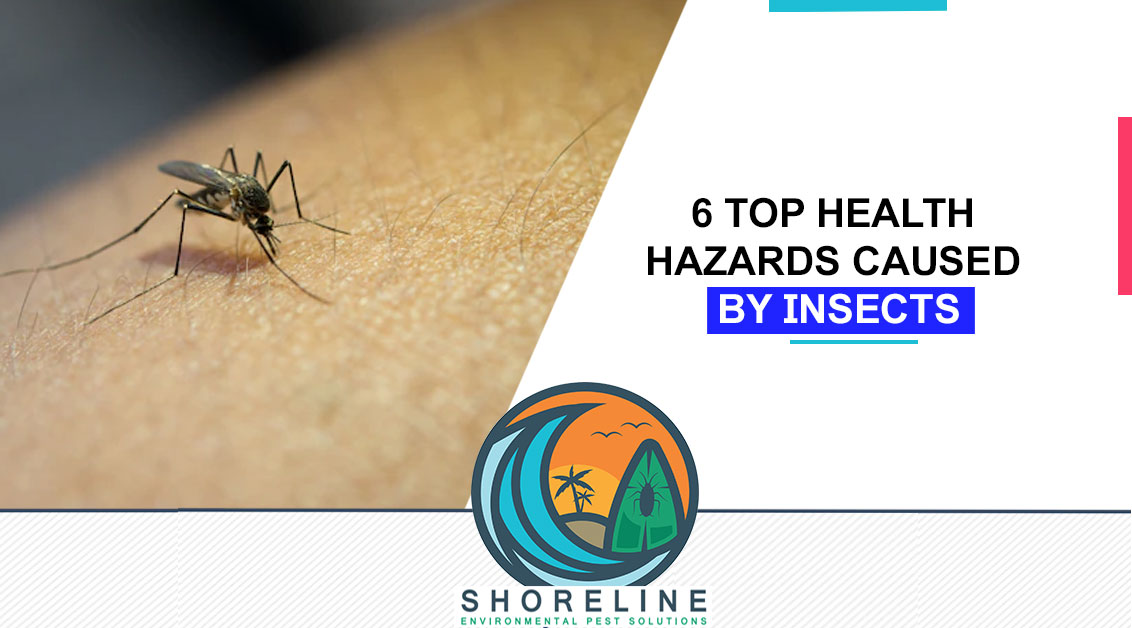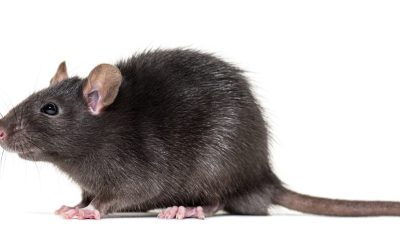If you’re outdoors during the summer, chances are you’ve seen hordes of flying insects. And if you’re like most people, you probably don’t think much of them. Well, think again! These tiny creatures can actually be quite harmful to your health.
In this article, we’ve gathered six of the most common health hazards caused by insects. From fleas to bed bugs, these pests can cause major problems for your health! We will also provide recommendations on how to reduce the risk of exposure. By learning about these hazards and taking appropriate precautions, we can keep ourselves and our loved ones safe from harm.
Health concerns from insects
Most people know that mosquitoes can spread malaria and other diseases, but few know about the different health hazards that insects can cause. Insects can cause allergic reactions, leading to serious health problems. If you’re experiencing any of the following signs after being bitten or stung by an insect, seek medical help immediately: itchy rash, fever, difficulty breathing, or diarrhea. To reduce your risk of getting sick, educate yourself about the types of insects that are most common in your area and avoid them whenever possible. Additionally, using a mosquito net when outdoors can help reduce your risk of malaria and other diseases.
Insects can be a major health hazard for you and your pets. Here are six of the most common health hazards caused by insects:
Malaria:
Malaria is a serious infection that can be life-threatening, especially for pregnant women and young children. Mosquitoes are the primary carriers of malaria, and exposure to them can lead to severe disease cases.
Symptoms of malaria: Symptoms of malaria can vary but commonly include fever, chills, headache, tiredness, and a flu-like illness. If you think you may have contracted the infection, contact your doctor immediately.
Malaria prevention: There is no 100% effective malaria prevention strategy, but various measures can help reduce your risk of exposure. Use insect repellent and avoid mosquito-infested areas. Also, get vaccinated against malaria if traveling to a place where the disease is common.
Tapeworms and typhus:
Fleas may not be as well known as mosquitoes, but they’re just as capable of carrying severe diseases such as typhus and tapeworms. Fleas live off blood from warm-blooded animals, which means they can jump onto humans and transfer these infections to them. If you’re allergic to fur, dander, or saliva, you may be at a greater risk of developing an allergy to fleas.
Symptoms: Symptoms of an allergic reaction can include hives, stomach pain, cough, nausea, difficulty breathing, and swelling in the face or throat. If you think you might have contracted a flea-borne disease, consult your doctor.
Prevention: Use insect repellent and avoid areas where fleas are common. Also, keep your home free of Fleas by regularly cleaning all surfaces they may reside on (cabinets, floors, bedding). If you find evidence that a member of your family has developed an allergy from flea bites, consult with a doctor to see if there’s anything you can do to prevent further infections.
Allergic reactions:
Bedbugs and fleas can cause allergic reactions in pets and humans. Bedbugs are tiny, brown insects that feed on human blood. While they are not deadly, bedbugs and fleas can trigger a severe allergic reaction in people sensitive to their bites. These reactions can range from mild skin irritation to full-blown anaphylaxis (a life-threatening condition caused by releasing all kinds of proteins). If you suspect a bedbug may have bitten you, you must seek medical help immediately.
Symptoms of insect allergies: The typical symptoms of an insect allergy are skin rashes, redness, and itchiness. These reactions can occur anywhere on the body where the insect bites you – including your face, neck, arms, and hands. If you think you may have developed an allergic reaction to bedbugs, see a doctor immediately for further diagnosis and treatment.
Symptoms of an allergic reaction to pets: Pets may show signs such as scratching, biting, and chewing at their skin. If you think an insect has bitten your pet, consult a veterinarian.
Allergy prevention: Keep your home, especially your bedroom, free of clutter. Contact a pest exterminator ASAP if you suspect bedbug infestation or see any related symptoms.
Dengue fever:
Dengue fever is a viral infection that can cause severe fatigue, body aches, high fever, and skin rash. It is most commonly spread through the bites of an infected mosquito. If you live in an area where dengue is common, wear long-sleeved shirts and pants to avoid being bitten by mosquitoes. In addition, discuss preventive measures such as using insect repellents containing DEET with your health care providers.
Asthma caused by insects
Asthma is a breathing disorder caused by various things, but one of the most common culprits is insects. Insects secrete toxins that aggravate asthma conditions, and their droppings are often highly allergenic. They can create allergies by releasing allergens into the air or biting people and releasing histamine, which triggers an allergic response.
If you have asthma and are struggling to breathe, be sure to get checked out by your healthcare provider. Often, treating the underlying cause of asthma will resolve the issue. In the meantime, take precautions to avoid insect bites and keep your asthma under control by preventing allergens and using asthma medications as prescribed.
Sleeping Sickness
Insects can cause many health hazards, but one of the most serious is sleeping sickness. This condition is most commonly spread through the bites of infected mosquitoes. If you’re ever worried about getting sick, taking precautions against mosquito bites is essential. There are many effective ways to prevent sleeping sickness, including using insect repellents and wearing long sleeves and pants when outdoors at night. Make sure to talk to your doctor about the best way to protect yourself from insect-related health hazards.
Insects can also cause skin conditions, such as fungal infections or dermatitis herpetiformis, an autoimmune skin disorder characterized by intense itching and reddish bumps on the skin that may blister and peel. The most common culprit is bed bugs, but other insects like mosquitoes can also be problematic in this way.
Insects can be a major health hazard, especially to people with allergies and asthma. By understanding the health hazards posed by different types of insects, you can take appropriate steps to protect yourself and your loved ones. Don’t wait until it’s too late – start taking steps to protect your health today!





0 Comments